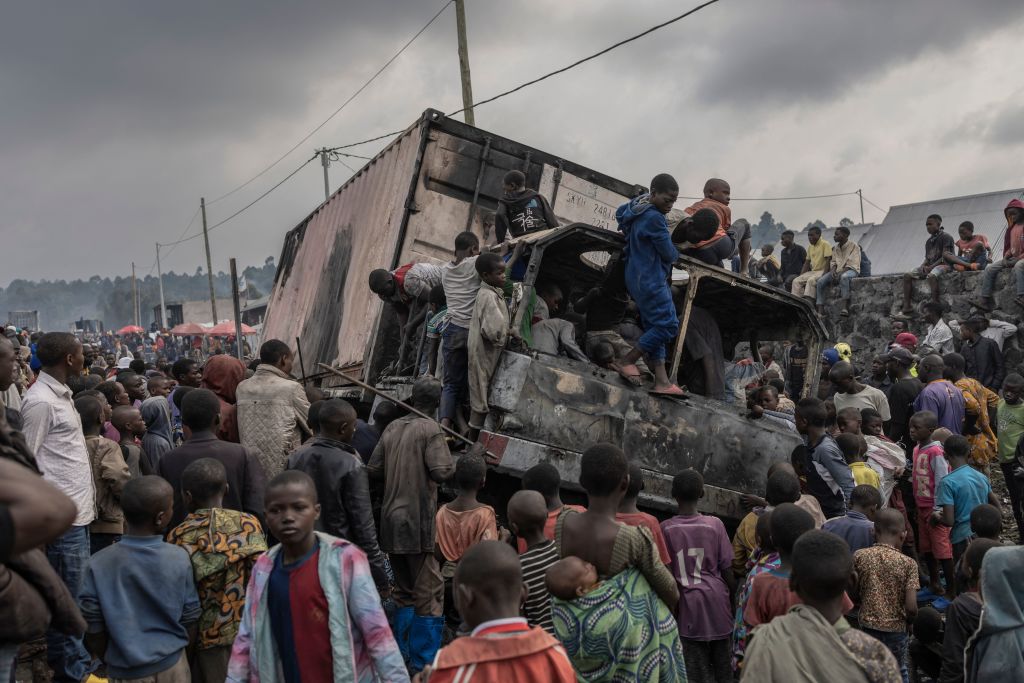ADF STAFF
Four United Nations peacekeeping missions in Africa are working to discredit disinformation campaigns aimed at undermining their credibility.
The peacekeeping missions MONUSCO in the Democratic Republic of Congo (DRC), MINUSCA in the Central African Republic (CAR), MINUSMA in Mali and UNMISS in South Sudan are working on the campaigns. The mission in Mali is scheduled to end by the end of 2023.
The U.N. notes that the initiatives are a way of fighting back against falsehoods that feed anger and violence. It is monitoring how misinformation, disinformation and hate speech can harm health, security and stability, and hinder progress toward sustainable development goals. The U.N. categorizes misinformation as false or inaccurate information, such as unsubstantiated rumors that are passed from person to person. Disinformation is deliberate and typically is spread on a large scale by a malign actor. It includes malicious content such as hoaxes, phishing and propaganda. It spreads fear and suspicion among the population.
The peacekeeping missions have been aware of the problem for some time. In a 2022 report for the International Peace Institute, editor and researcher Albert Trithart reported that “a growing barrage of disinformation” has targeted U.N. peacekeeping missions. “This includes false allegations that UN peacekeepers are trafficking weapons to armed groups, supporting terrorists, and exploiting natural resources,” Trithart wrote. “This disinformation makes it harder for peacekeeping operations to implement their mandates and has put the safety of peacekeepers at risk.”
Officials say MONUSCO’s problems with disinformation go back as far as 2019, with social media campaigns targeting their peacekeeping work.
The missions are trying to educate the public on misinformation and disinformation campaigns. In June, MONUSCO organized an awareness day for a hundred students from the Bilingual Christian University of Congo in Beni, North Kivu province. This awareness-raising is part of a series of activities the mission is organizing throughout the nation to fight disinformation.
It’s a problem that U.N. officials say must have a response.
“It’s clear business as usual is not an option,” Secretary-General António Guterres said in a June policy brief, as reported by defenceWeb. “The ability to disseminate large scale disinformation to undermine scientifically established fact poses an existential risk to humanity and endangers democratic institutions and fundamental human rights.”
The U.N. says missions are using smartphones and editing apps along with innovative approaches to build a “digital army” aimed at combating misinformation and disinformation on social media networks and beyond.
“There is a war going on through social media, the radio and traditional news outlets,” MONUSCO head Bintou Keita said, as reported by defenceWeb. “Fighting deadly disinformation has been a painful curve to learn of this new battlefield, but the mission is now proactive on social and other media platforms to help stop its spread.”
The MONUSCO initiatives against disinformation include recruiting digital experts, building multimedia products and reaching out, especially to social media-savvy young people, Keita said.
With these tools, MONUSCO tries to “beef up capacity to monitor and be present on digital platforms so we are not always reactive, but in an anticipatory mode,” she said.
In his report, Trithart wrote that the disinformation campaigns have grown quickly and that the peacekeeping missions still are playing catchup.
“They need greater capacity and coordination to monitor and analyze disinformation both online and offline,” he reported. “They need more streamlined approval processes that allow them to respond to disinformation more quickly. In the longer term, they also need to shift toward preventive approaches, including by proactively reshaping narratives about the UN and contributing to a healthier information environment through support to local journalists.”
Saidath Swaleh, a DRC student in information and communication sciences, pleaded for sanctions against disinformation merchants. She told U.N. officials that, “We must punish those who deliberately spread false information.”

